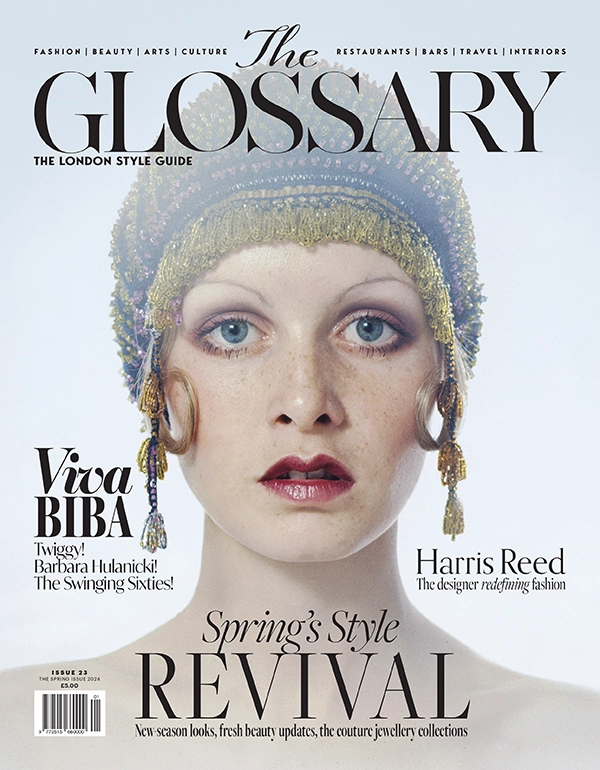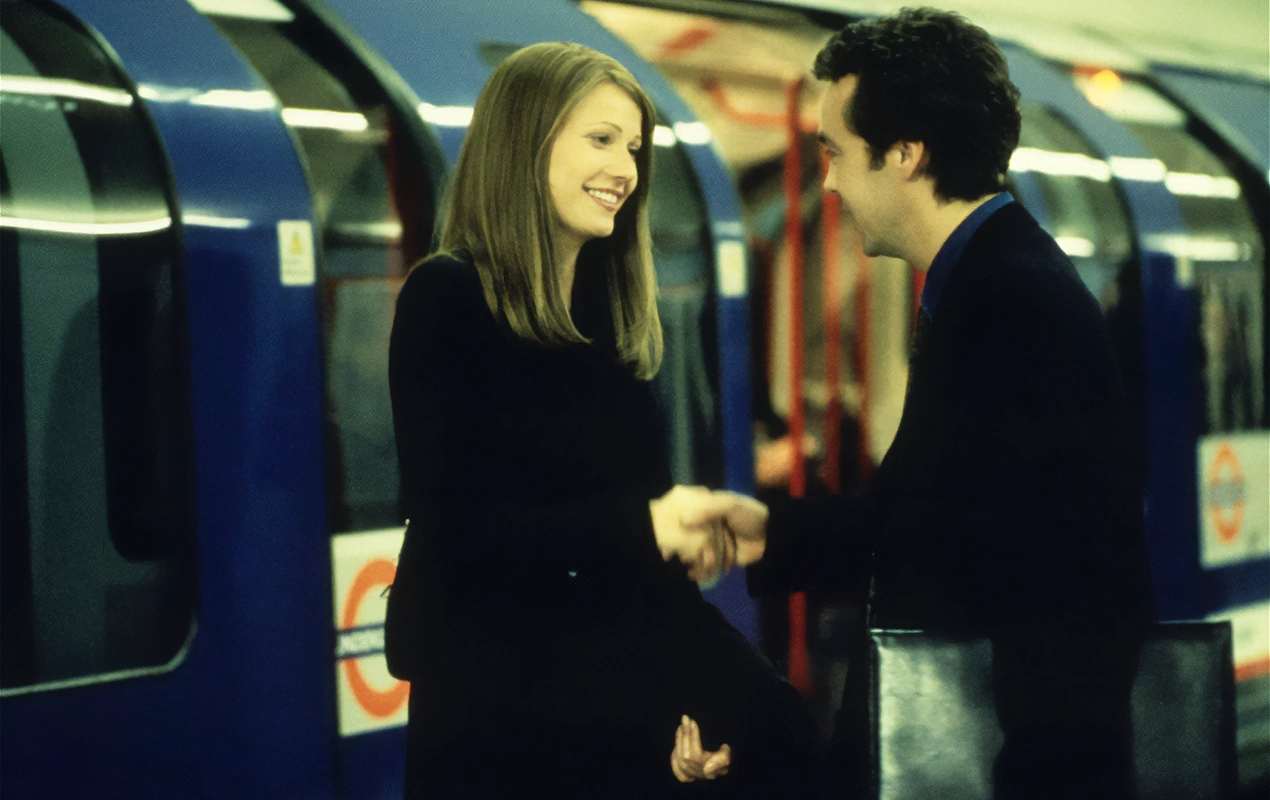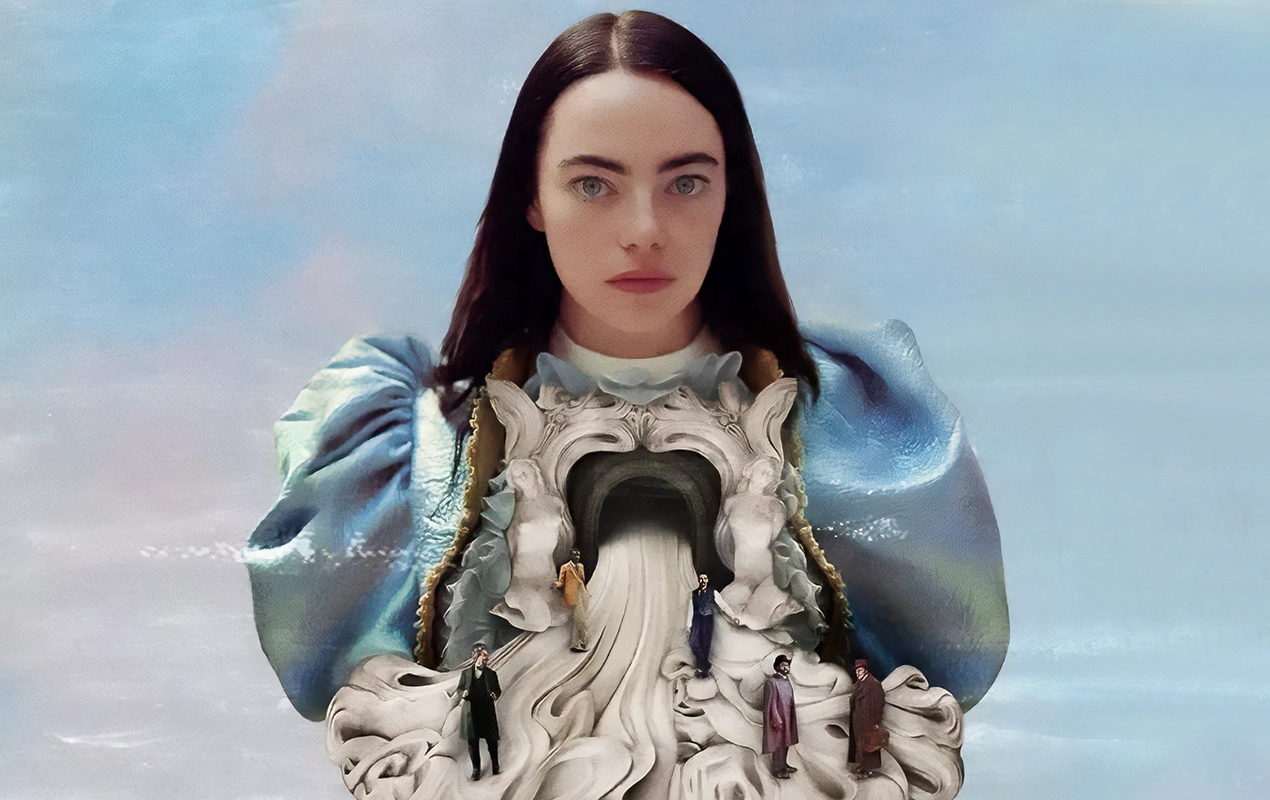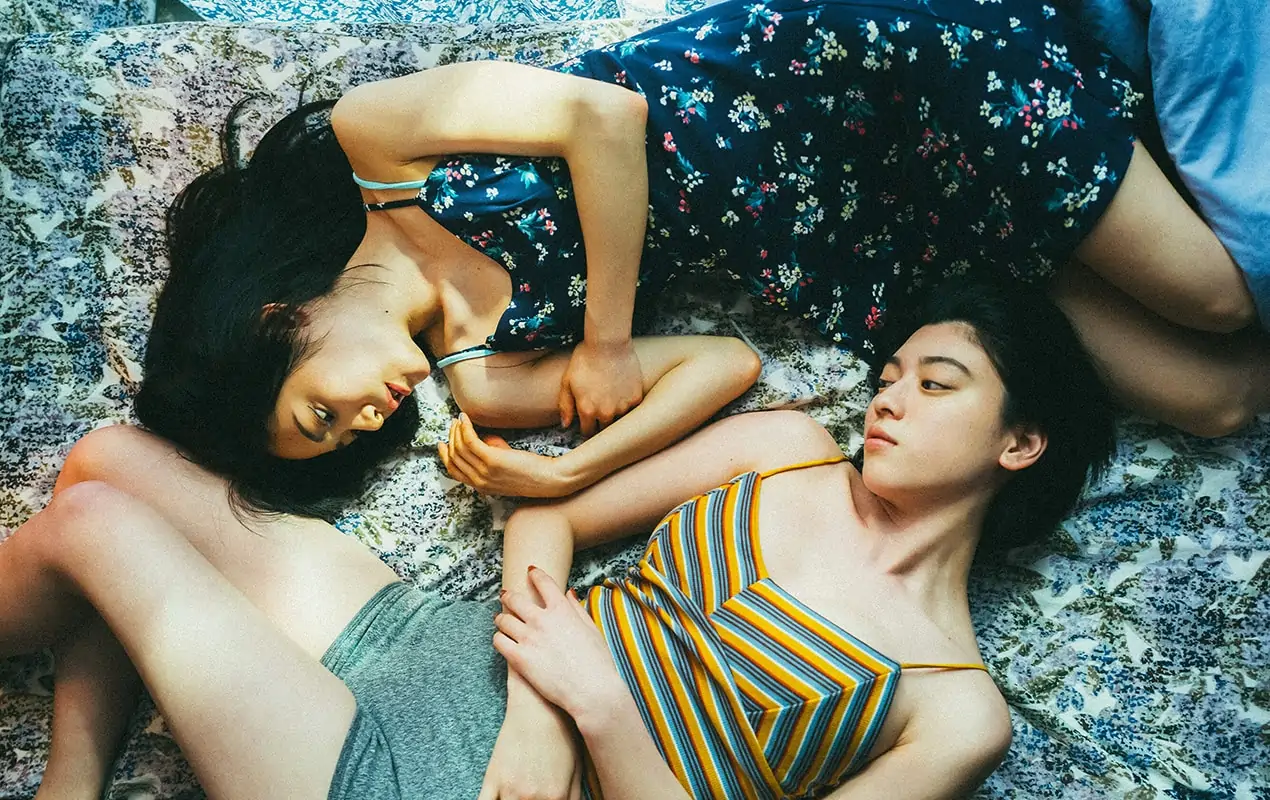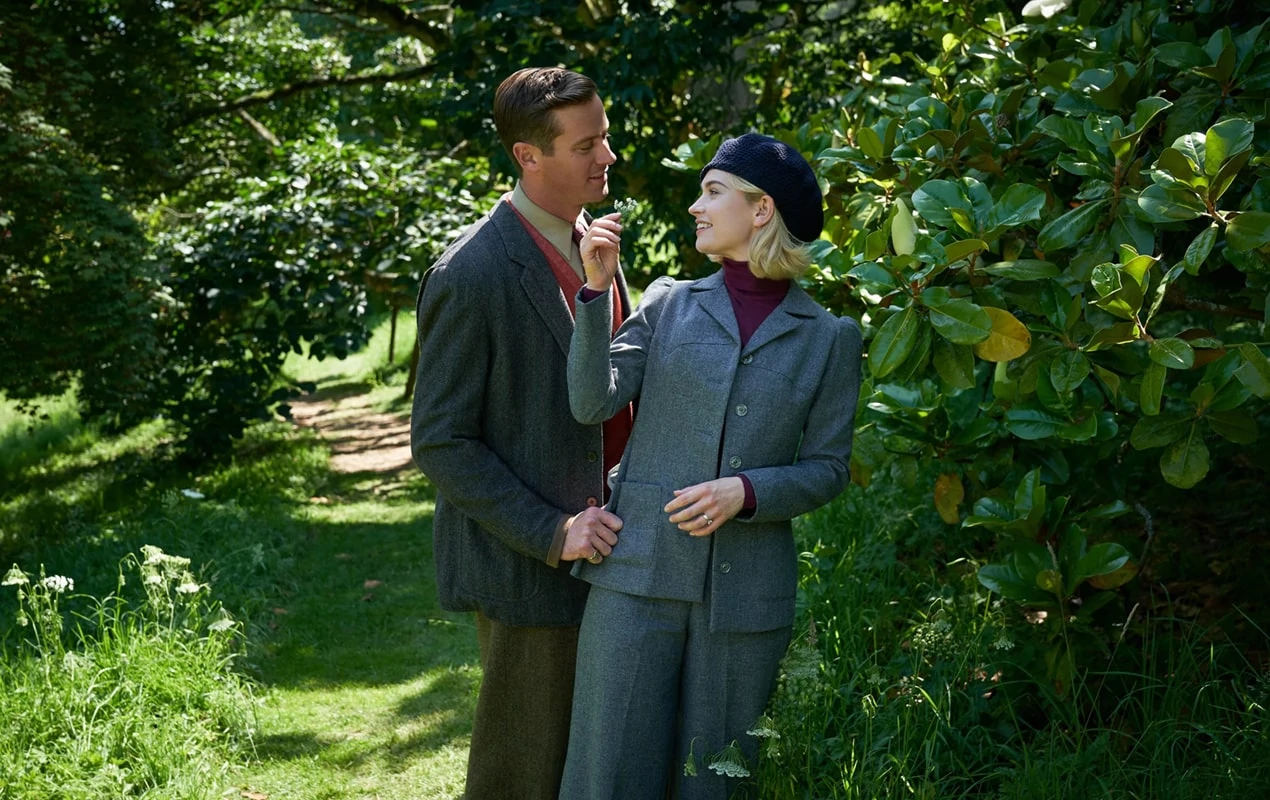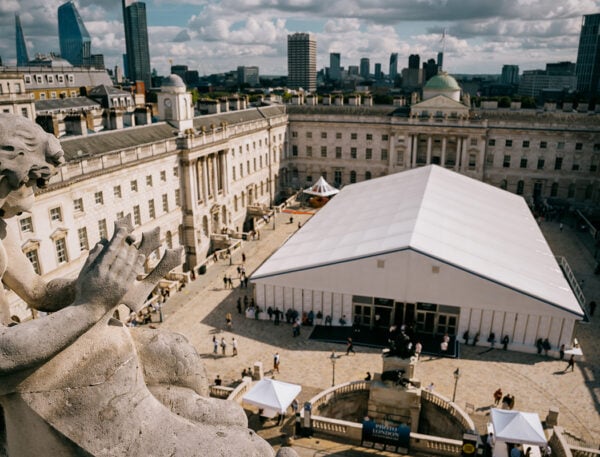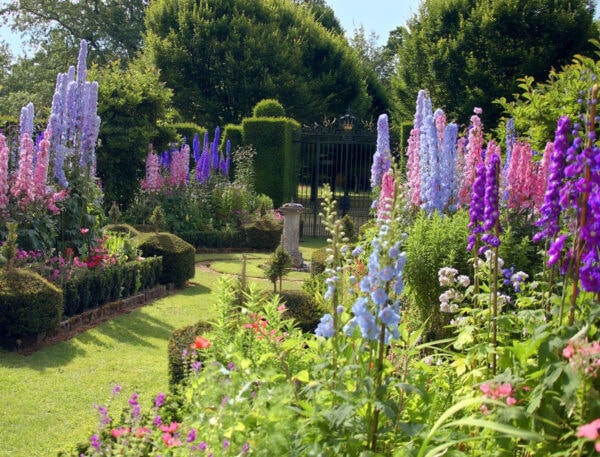If you want to see the capital in all its glory, look no further than our pick of the best London films. One of the world’s most cinematic cities, there’s no shortage of brilliant movies shot on its streets, whether you’re in the mood for a charming rom-com, an engrossing drama or an apocalyptic horror. From Notting Hill in the Swinging Sixties to Thatcherite south London and current day Peckham, these award-winning and acclaimed London movies will have you falling in love with the capital over and over again.
The best London Films
Rye Lane, 2023
One of the most hotly anticipated London films of the year, Raine Allen-Miller’s debut has been hailed as a breath of fresh air in the rom-com genre. Rye Lane follows accountant Dom (David Jonsson) and aspiring costume designer Yas (Vivian Oparah), after they meet in a unisex toilet at a mutual friend’s art exhibit. Though on the surface they couldn’t seem more different, they soon hit it off and as they meander along Peckham’s bustling main high street, Rye Lane, they find out they have more in common than they first thought. Set in Peckham and Brixton, it’s been described as a “love letter to south east London”.
Paddington, 2014
The first full-length film starring the nation’s favourite bear was an instant hit when it aired, and soon sparked a similarly beloved sequel. You’re probably familiar with the story, which charts the arrival of a plucky bear from the jungles of Peru who finds himself on the streets of London. He’s adopted by the Brown family and is quickly absorbed into their London life, joining them at their townhouse in Windsor Gardens and causing minor mayhem at key sights around the capital including the Natural History Museum, Portobello Market and, of course, Paddington station.
A Brixton Tale, 2021
This compelling drama set in the vibrant neighbourhood of Brixton offers up an interesting take on identity. The girl-meets-boy tale follows white middle-class teenager Leah (Lily Newmark) and Benji (Ola Orebiyi), who is Black and from a low-income family. Budding video artist Leah starts to document their life together, but when her aunt (played by Jaime Winstone) asks her to show some of her material at her gallery for emerging artists, her real perception of Benji is revealed with dire consequences. Directed by first timers Darragh Carey and Bertrand Desrochers, the film poses questions about Britain’s class system and asks who’s really in charge of the visual narrative.
Mary Poppins, 1964
While this classic Disney film may offer up a slightly more idyllic version of the capital than we’re used to, its sweeping shots of the London rooftops with nanny extraordinaire Mary Poppins (Julie Andrews) floating through the sky above them are some of the most romantic you’ll find on screen. Set in Edwardian-era London, the film offers up a delightful blend of live action and animation, as well as dancing chimney sweeps and charming smoke-filled cityscapes.
Nil by Mouth, 1997
This gritty account of a family living in south east London draws on director Gary Oldman’s own upbringing in New Cross. The film follows Val (Kathy Burke), her violent and abusive partner Ray (Ray Winstone) and their extended family, and offers up an unflinching portrayal of poverty, violence and addiction in the capital. Set around the Old Kent Road, much of the film was shot on the now-demolished Ferrier Estate in Kidbrooke, Greenwich, and working-class London appears in almost every frame.
A Clockwork Orange, 1971
Stanley Kubrick’s stylish retelling of Anthony Burgess’s dystopian novel is often hailed as one of the director’s finest – and most controversial – films. When anti-hero Alex is imprisoned, he volunteers for an experimental therapy conducted by the government in a bid to reduce his sentence, but it soon goes horribly wrong. The film follows Alex and his gang of violent ‘droogs’ as they cause havoc around the capital, stopping to buy records at the famous 60s shopping centre Chelsea Drugstore, brawling under Albert Bridge and being chucked in the river by the Thamesmead Estate near Woolwich.
Wonderland, 1999
Set over a chilly November weekend in London, this lyrical Michael Winterbottom film charts the story of three working-class sisters, played by Gina McKee, Shirley Henderson and Molly Parker. Loosely inspired by Chekhov’s Three Sisters, the film explores their lives and loves as the siblings try to find their way in the world. The film offers one of the more realistic portrayals of London you’re likely to see on the silver screen, with Soho and Leicester Square revealed in all their grubby, neon glory.
Blow-Up, 1966
This cult thriller was director Michelangel Antonioni’s first entirely English-language film, so it’s fitting that the storyline takes place in London. Starring Vanessa Redgrave and Jane Birkin, the plot follows a day in the life of fashion photographer Thomas (David Hemmings) – a character thought to be inspired by David Bailey – as he leaves his hip W11 studio to explore the capital in all its Sixties hedonistic glory. But when Thomas inadvertently captures a murder on his camera, has he landed himself in hot water?
Performance, 1970
James Fox plays a gangster forced into hiding after killing a friend and who finds shelter in the Notting Hill home of a washed-up rock star, aka Rolling Stone frontman Mick Jagger. Together the two of them end up on a dark, psychological, drug-fuelled journey, where they slowly start to morph into each other. Though the film was met with much controversy on its release, it has since been lauded for capturing the zeitgeist of the capital at the time and described by the BFI as a “kaleidoscopic odyssey into the dark heart of swinging London”.
The Long Good Friday, 1980
Today, Bob Hoskins and Helen Mirren might not seem the most likely candidates to star in a British gangster flick, but this film about political and police corruption will prove modern audiences wrong. Finsbury Park local Hoskins spends most of his time cruising around the East End in this movie – until his mob boss’s car gets blown up outside St George-in-the-East church in Shadwell. There’s also Barrow Boys and Cockney Rhyming Slang galore, providing a fascinating look at bygone London.
Passport to Pimlico, 1949
This classic British comedy sees the residents of Pimlico discover that, due to an ancient treaty, they aren’t actually part of the UK. Cue the introduction of many hilarious new rules, after chaos unfolds in the capital’s streets, as they escape the laws of bureaucratic Britain. While Passport to Pimlico is eerily pertinent now, in the wake of Brexit, it’s also a glimpse of post-war London and its landmarks including Trafalgar Square Westminster and London Zoo, though much was filmed on a purpose-built set on a bombsite on Lambeth Road.
Rocks, 2020
An uplifting coming-of-age story set in today’s capital. 15-year-old Hackney schoolgirl Shola (a.k.a Rocks) comes home one day to find that her mentally ill mother has abandoned her and her younger brother, Emmanuel. But despite the bleak narrative, this film is a joyful one about navigating the challenges of life in contemporary London. In fact, Rock’s up-and-coming screenwriter Theresa Ikoko herself describes the film as “a love letter to London.”
The Ladykillers, 1955
This black comedy, about a gang of hardened criminals who are outwitted by sweet old Mrs Wilberforce, was filmed in and around Kings Cross. While most of the original locations have either been revamped or gentrified, the old railway tunnels that star are still much in evidence today. Either way, the Oscar-nominated screenplay – featuring Alec Guinness and Peter Sellers – has its own timeless appeal, and was remade in 2004 for precisely that reason.
My Beautiful Laundrette, 1985
South London in the mid-80s serves as the backdrop for this drama written by the award-winning Hanif Kureishi. In it, a British-Pakistani man named Omar takes over a local laundrette with his best friend Johnny, played by Daniel Day-Lewis in his first major film role. But Omar and Johnny are not only partners in business but in life, too, and are secretly in a relationship. As well as providing some retro shots of a now unrecognisable South London, it also gives an interesting insight into race relations and homosexuality in Thatcherite London.
Babylon, 1980
Racial tension and police brutality form the basis of this Brixton-based film, which was released just a year before the Brixton riots took place. At the time, large swathes of the area’s African-Caribbean community were facing high unemployment – a situation depicted by Aswad frontman Brinsley Forde who plays Blue, a black British teenager who is being held back by the system. A great insight into the history of Brixton, but also a relevant look at the ingrained prejudices that still pervade our establishments today.
Notting Hill, 1999
This feel-good Richard Curtis film takes place primarily in West London, where Hollywood actress Julia Roberts falls for local travel book store owner Hugh Grant. Screening like an ode to the Notting Hill area (Curtis has since said that the film’s success sped up the area’s gentrification), we see Grant repeatedly pacing past the local off-beat boutiques and through Portobello Market to his now-famous blue front door. But there’s also plenty to see beyond W11, as our hero races to the West End to declare his true feelings for his unlikely love interest.
28 Days Later, 2002
You could say that 28 Days Later holds a mirror up to the London we’ve recently experienced, thanks to Danny Boyle’s post-apocalyptic narrative following the outbreak of a highly contagious virus. Of course, there were never any zombies wandering around the capital, but the deserted cityscape now feels all too familiar. Cillian Murphy, Naomie Harris and Christopher Eccleston all appear, but the real star of the show remains London, in all her deserted glory.
Sliding Doors, 1998
This 90s rom-com sees Helen (Gwyneth Paltrow) take the tube home after getting fired from her job in PR to find her boyfriend (John Lynch) in bed with another woman. But this is only one of the timelines the film puts forward. In the second, Helen misses the tube – i.e. the title’s sliding doors – meaning that she’s too late to witness her partner’s betrayal. The rest of the film plays out the two alternative scenarios, with the capital’s iconic underground providing the perfect backdrop for a story of near misses.
Victim, 1961
In this neo-noir thriller, Dirk Bogarde plays a married barrister whose secret romance with a young man leads him to be blackmailed. Shot six years before the law decriminalised homosexuality in the UK, the film features plenty of well-loved London locations including Covent Garden’s The Salisbury pub, a well-known gay-friendly watering hole from Oscar Wilde’s time until the mid-1980s. In fact, Victim was the first English language film to use the word “homosexual” on screen, causing it to be initially banned in the US.
